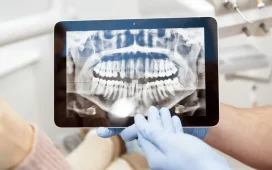A chin implant can give your lower face, profile, and jawline more definition and shape while enhancing a tiny or receding chin. Although most chin implants are done for cosmetic purposes, the procedure can occasionally aid in facial reconstruction.
Chin augmentation (enlargement) and chin enhancement are other terms for implant surgery. If you are looking forward to know how to care for the external wound after chin augmentation (วิธีดูแลหลังเสริมคางแผลนอก, which is the term in Thai)
You will receive information from your healthcare physician regarding how to get ready for chin implant surgery. A physical examination and lab testing could be required to ensure your health. You should give up smoking several weeks before the surgery if you smoke.
Before chin implant surgery, your doctor may also ask you to cease taking a specific medicine. Inform them of all your medications, such as herbal supplements, aspirin, and anti-inflammatory treatments. They may also ask you to begin taking antibiotics to lower your risk of infection. It is always a good idea to be very sure of the this kind of surgery done before actually taking any action.
Before surgery, your surgeon may take pictures of your side profile and chin. Using photos, your surgeon can arrange your surgery and compare the results before and after.
What Happens During Chin Implant Surgery?
Depending on the length and complexity of the treatment, your surgeon and care team may:
- Ask you to be patient as this process can be very overwhelming
- Do take pain killers as sometimes a little pain can happen
Chin Implant Surgery – After Effects
It is very important to know about how to care for the external wound after chin augmentation. However, individuals spend the night in the hospital less frequently. Your surgeon will give you detailed instructions on caring for your incision.
Ensure that you have enough pillows, or consider raising the head of your bed. After your chin augmentation surgery, you will need to sleep face up with your head propped up for a few weeks to reduce post-op swelling and avoid pressure points on your incision.
Conclusion
Many people who are not aware of the procedure—its norms, ethics, and standard operating procedures—make the mistake of choosing a band-aid solution or putting their trust in a subpar aesthetic facility. Complications may persist during therapy or the healing process.















